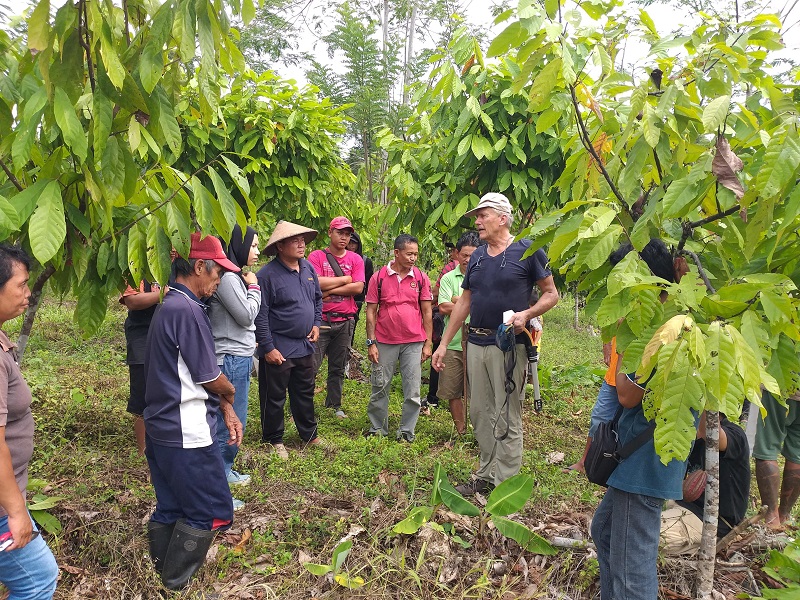
From August 15th until 24th 2019 FORCLIME conducted agroforestry trainings for FMU extension workers and selected farmers with the internationally renowned agroforestry expert Joachim Milz from Bolivia. These trainings were conducted in a sequence from Kapuas Hulu, then Malinau and Berau and constitute a follow-up to a series of previous agroforestry training events. FORCLIME promotes agroforestry as a means to increase biodiversity and diversification of cash-crops. The underlying goal of agroforestry is to mimic natural forests, through high density and stratification. A selected composition of mutually complementing species around the specific main crop is planted, which does generally also include the cultivation of non-timber forest products. A well-designed agroforestry system can be managed without external inputs, because deliberately planted biomass serves as natural fertilizer. Ideally also no pesticides and herbicides are used in agroforestry, providing the added value of organic products. Last-but-not-least slash-and-burn free land clearing methods were presented to the audience. Thereby a vital impulse for sustainable development was provided to the relevant FMU´s and concerned farmers.
For further information, please contact:
Stephan Kitzbichler, Development Advisor for Non-Timber Forest Products (NTFP) and Value Chains for Green Economy Development
Lutz Hofheinz, Strategic Manager FMU Development






